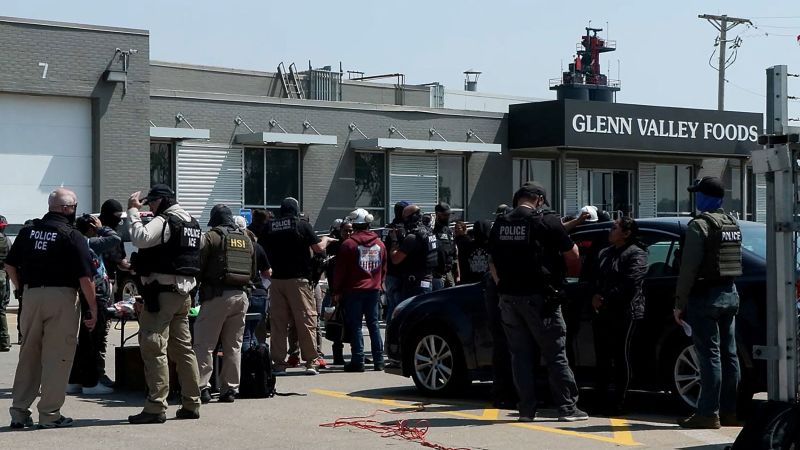The Trump administration’s stringent immigration policies, particularly its focus on undocumented immigration and the intention to carry out mass deportations, represent a significant shift in the United States’ approach to immigration. This crackdown threatens to affect the daily lives of not just undocumented immigrants and their families but also millions of American citizens who have deep personal connections to them. The ramifications of these policies are far-reaching, influencing communities, workplaces, and social structures across the nation.
Undocumented immigrants, who contribute to various sectors of the economy, are now positioned precariously as a result of these policies. Many individuals who have resided in the U.S. for years, building lives, careers, and families, are living under a constant cloud of fear. The potential for deportation disrupts not only the lives of these individuals but also those of their children, who may be U.S. citizens. The psychological toll of living in such precarious environments can lead to severe mental health issues, impacting their overall well-being and sense of security.
For many American families, the issues surrounding undocumented immigration are personal. Numerous citizens may have relatives or friends who are undocumented immigrants, creating a network of concern and anxiety. Their stories often highlight the complexities of immigration — individuals who came to the U.S. seeking better opportunities, fleeing violence, or uniting with family members. The broad brush of mass deportation threatens to sever these ties, fracturing families and eroding the social fabric of communities that are dependent on the contributions of these immigrants.
The implications of the Trump administration’s policies extend beyond just the emotional and psychological impact. Economically, undocumented immigrants play crucial roles in numerous industries, including agriculture, construction, and hospitality. A sudden reduction in this workforce could result in labor shortages, increased operational costs, and ultimately raise prices for consumers. As these workers are removed from the economy, the ripple effects could be felt by everyday Americans, who might witness the rising costs of goods and services as businesses struggle to adapt to diminished labor pools.
Additionally, the administration’s emphasis on strict immigration enforcement has led to a charged atmosphere in which many individuals are afraid to seek help or services they may be entitled to, such as healthcare or education. The chilling effect of fear over possible deportation can deter families from accessing essential resources, resulting in negative outcomes not only for themselves but for broader society as well. Children might miss school due to travel restrictions, or parents might avoid medical care out of concern for attracting attention to their status, leading to broader public health issues.
In spite of the fear and uncertainty surrounding immigration issues, there is also an ongoing dialogue about the impact of these policies. Many advocates continue to push back against deportation efforts, focusing on inclusive immigration reform that better supports families and addresses the complexities of modern immigration. Community organizations, legal aid groups, and social service institutions are mobilizing to help affected families navigate the challenges imposed by new policies, showcasing a resilience within communities that strive to uphold the dignity of all individuals, regardless of their immigration status.
We invite readers to share their experiences regarding how the Trump administration’s immigration policies have impacted their lives or the lives of those around them. Stories can shed light on the human side of the immigration debate, revealing the personal struggles, victories, and everyday realities of those affected by these policies. Engaging in this dialogue can build understanding and advocate for compassion amidst a contentious political climate. By amplifying these voices, society can work toward pushing for meaningful change that respects the dignity of all individuals and fortifies the values of inclusivity and community that are foundational to American society.



